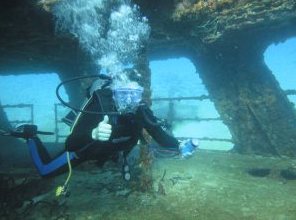Choosing a Dive Light

First and foremost, the dive light needs to be water-proof. I know, it sounds ridiculous. If you are scuba diving, it goes without saying. But this is a commonly looked over piece of advice. So make sure you take it into account. It would be absolutely terrible to spend money on a dive light, only to jump in the water and have it short out. Now a days most flashlights tend to be waterproof. But always make sure to double check. Better safe than sorry.
Next, you are going to want to evaluate how you will be using the dive light. Understand your particular needs as a diver, then plan accordingly. Will you be staying to the shallows (99 feet and above), or will you be going deeper and exploring further? Will you be diving during the day, and only using your dive light for cracks and caverns? Or will you be diving at night, and relying on your dive light as your lifeline? These are very important questions to ask yourself before you jump in.
If you are diving during the day, you may only need a smaller, more accurate light. Something to look under rocks, and in cracks. But if you are diving at night, and relying heavily on your light, you may want to get something with a wider beam, therefore illuminating a broader area.
